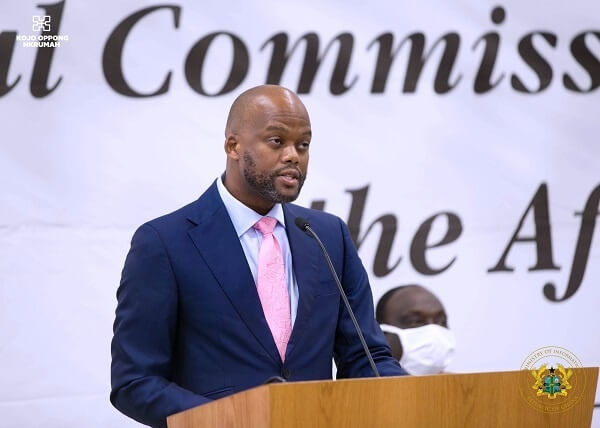
Our Projects are
Transforming African Trade
Quick Contacts
2nd Floor, Fidelity Insurance Centre Waiyaki Way, Westlands

The Africa Continental Free Trade Area (AfCFTA) Secretariat and African Export-Import Bank (Afreximbank) have signed a fund management agreement to raise funding support for party states and commercial entities in the area of trade.
As indicated by the secretariat, the estimated fund requirement for uninterrupted implementation of the AfCFTA agreement and to eliminate the adjustment cost is about US$10 billion over the next six years, and this agreement is to help raise funding in that regard.
“We as Africans cannot continue to go to the World Bank, IMF, and others to finance our own trade as a continent. So, I will rather go cup in hand to Afreximbank, Trade and Development Bank, then go to the others in Europe and other parts of the world for support. We are not going to succeed in the implementation of this trade agreement without Afreximbank.
This Adjustment Fund is being introduced because we know that as member countries are implementing tariff adjustment mechanisms, there would be some revenue loses in the short term and we want to ensure that their interest is accommodated. This is where the Afreximbank comes in as the pillar of implementation of AfCFTA by providing this facility of US$1billion, to make sure that we implementing AfCFTA the way that we want it,” he said.
Adding to that, he stated that the agreement being signed between the two parties is the right tool to making sure that the AfCFTA is successfully implemented, as it will make trade finance accessible to businesses in the trade area.
The financial instrument dubbed AfCFTA Adjustment Fund, has three components namely the Base Fund, General Fund, and Credit Fund. However, the agreement signing exercise that took place today was for only the Base Fund, with the other two expected to take place within the coming weeks.
The Base Fund is accessible to only state parties and the qualification criteria for this particular instrument is that any state seeking to access it must demonstrate that it has suffered some loses from the implementation of AfCFTA and need support in that regard.
Secondly, the General Fund, is accessible to both party states and companies within member states who have acquired rule of origin certificate and are operating in the area.
Finally, the Credit Fund, will advance loans to only commercial firms and other financial institutions who will need funds to expand their operations or grow their business.
Funding streams for this purpose will include grants, donors from party states, as well as other financial institutions.
On his part, the President and Chairman of the Board of Directors, Afreximbank, Prof. Benedict O. Oramah, stated that the bank is advancing US$1billion to specifically the Base Fund, adding that it is committed to making sure AfCFTA is a real trade agreement and not another political talk.
“Indeed, AfCFTA implementation would be meaningless unless it leads to economic liberation of all members on the continent. It is also meaningless if it brings wealth and business only to some few communities and countries whilst impoverishing others, and that is not the Africa we want.
We want to protect the vulnerable from suffering from the implementation of AfCFTA tariffs reduction and subsequent removal. Therefore, the Afreximbank board, has advanced US$1billion to support this fund. We want to assure the secretariat that we will support the AfCFTA because we are Africans and this project belongs to all of us,” he said.
Adding to that he emphasized that nobody who is serious about development goes to beg others for this development.
He added that the launch of Pan-African Payment and Settlement System (PAPSS) not long ago complements this agreement as it has made it possible to domesticate payment on the continent and allow trade in any currency across the continent.
Read original article
Disclaimer: The views and opinions expressed in this article are those of the authors and do not necessarily reflect the official policy or position of TradeMark Africa.